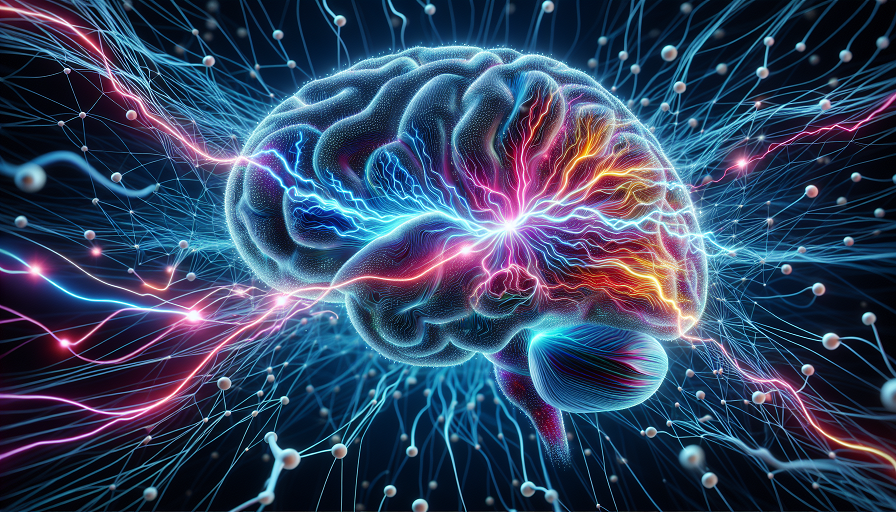
As we age, changes in our bodies and minds are inevitable. While some cognitive functions may decline over time, the brain’s ability to adapt, learn, and rewire itself—known as brain flexibility or neuroplasticity—remains an incredible source of resilience. This capacity for adaptability allows older adults to maintain cognitive function, develop new skills, and thrive despite the challenges of aging.
What Is Brain Flexibility?
Brain flexibility, or neuroplasticity, refers to the brain’s ability to reorganize itself by forming new neural connections. This adaptability enables the brain to learn new information, recover from injuries, and adjust to changes in the environment or body. Neuroplasticity is a lifelong process, but it tends to decrease with age, making it more challenging to adapt to new situations or acquire new skills.
Despite this natural decline, research has shown that the brain retains significant plasticity throughout life. The key is engaging in activities and adopting habits that stimulate the brain and encourage adaptability.
How Aging Affects Brain Flexibility
Aging impacts the brain in several ways, some of which can influence its flexibility:
Structural Changes
As we age, certain regions of the brain, particularly the prefrontal cortex and hippocampus, may shrink. These areas are responsible for executive functions, memory, and learning—processes closely linked to cognitive flexibility.
Slower Neural Communication
Aging can lead to slower neural communication, making it more difficult for the brain to process and integrate new information. This may result in slower reaction times or a reduced ability to switch between tasks.
Decline in Neurotransmitter Levels
Neurotransmitters like dopamine, serotonin, and acetylcholine, which play a crucial role in learning and mood regulation, tend to decline with age. This can affect motivation and cognitive adaptability.
Accumulation of Cognitive Load
Older adults may experience a buildup of cognitive load due to lifelong stressors, health conditions, or other factors, which can impact the brain’s ability to stay flexible and resilient.
Signs of Reduced Brain Flexibility
Reduced brain flexibility can manifest in various ways, including:
- Difficulty learning new skills or adapting to changes in routine
- Increased reliance on familiar patterns and behaviors
- Struggles with multitasking or switching between tasks
- Greater frustration when facing new challenges
While these changes can be concerning, they are not inevitable. With the right strategies, it’s possible to slow down or even reverse these effects.
Strategies to Preserve and Enhance Brain Flexibility
The brain’s plasticity can be nurtured at any age through intentional habits and activities. Here are science-backed strategies to keep your brain adaptable and resilient:
Stay Physically Active
Exercise is one of the most effective ways to support brain health. Activities like walking, swimming, or yoga improve blood flow to the brain, promote neurogenesis, and reduce the risk of cognitive decline. Aerobic exercise, in particular, has been linked to greater neuroplasticity in older adults.
Keep Learning
Engage in lifelong learning by picking up new skills, exploring hobbies, or taking classes. Learning a new language, playing a musical instrument, or mastering a new technology are excellent ways to challenge the brain and encourage flexibility.
Practice Mindfulness and Meditation
Mindfulness practices reduce stress and improve focus, both of which support brain flexibility. Meditation has been shown to increase gray matter in brain regions associated with learning and memory, enhancing overall adaptability.
Engage in Social Activities
Social interactions stimulate the brain and reduce the risk of cognitive decline. Join clubs, volunteer, or spend time with friends and family to maintain social connections and foster mental agility.
Challenge Your Brain
Mental exercises like puzzles, chess, or strategy games keep the brain engaged and adaptable. These activities improve problem-solving skills and help maintain cognitive flexibility.
Prioritize a Healthy Diet
A diet rich in antioxidants, omega-3 fatty acids, and vitamins supports brain health. Foods like berries, nuts, fatty fish, and leafy greens provide essential nutrients that promote neuroplasticity.
Get Quality Sleep
Sleep is essential for brain health, allowing the brain to repair and consolidate memories. Aim for 7-9 hours of quality sleep per night to support cognitive function and flexibility.
Real-World Examples of Brain Flexibility in Aging
Many older adults demonstrate remarkable brain flexibility, often surpassing societal expectations. For example:
- A 70-year-old picks up painting for the first time, developing new neural pathways and discovering a hidden talent.
- An 80-year-old learns to use social media to connect with family, adapting to new technology and expanding their communication skills.
- A retired professional starts a second career in a completely different field, showcasing the brain’s ability to learn and adapt even in later years.
These examples highlight the brain’s incredible potential for growth and adaptability, regardless of age.
The Future of Brain Flexibility Research
Ongoing research into neuroplasticity and aging continues to uncover new ways to support cognitive health. Emerging technologies like brain-computer interfaces, virtual reality, and neurofeedback hold promise for enhancing brain flexibility in older adults. Additionally, advances in pharmacology and nutrition may lead to innovative treatments that target specific mechanisms of neuroplasticity.
Aging and brain flexibility are deeply interconnected, but growing older doesn’t have to mean losing cognitive adaptability. By understanding the factors that influence neuroplasticity and adopting proactive strategies to nurture the brain, individuals can maintain mental agility and resilience throughout life. From physical exercise to lifelong learning, small daily habits can make a significant difference in preserving and enhancing brain flexibility. The potential for growth and adaptation remains with us at every stage of life, proving that it’s never too late to unlock the full potential of the mind.


